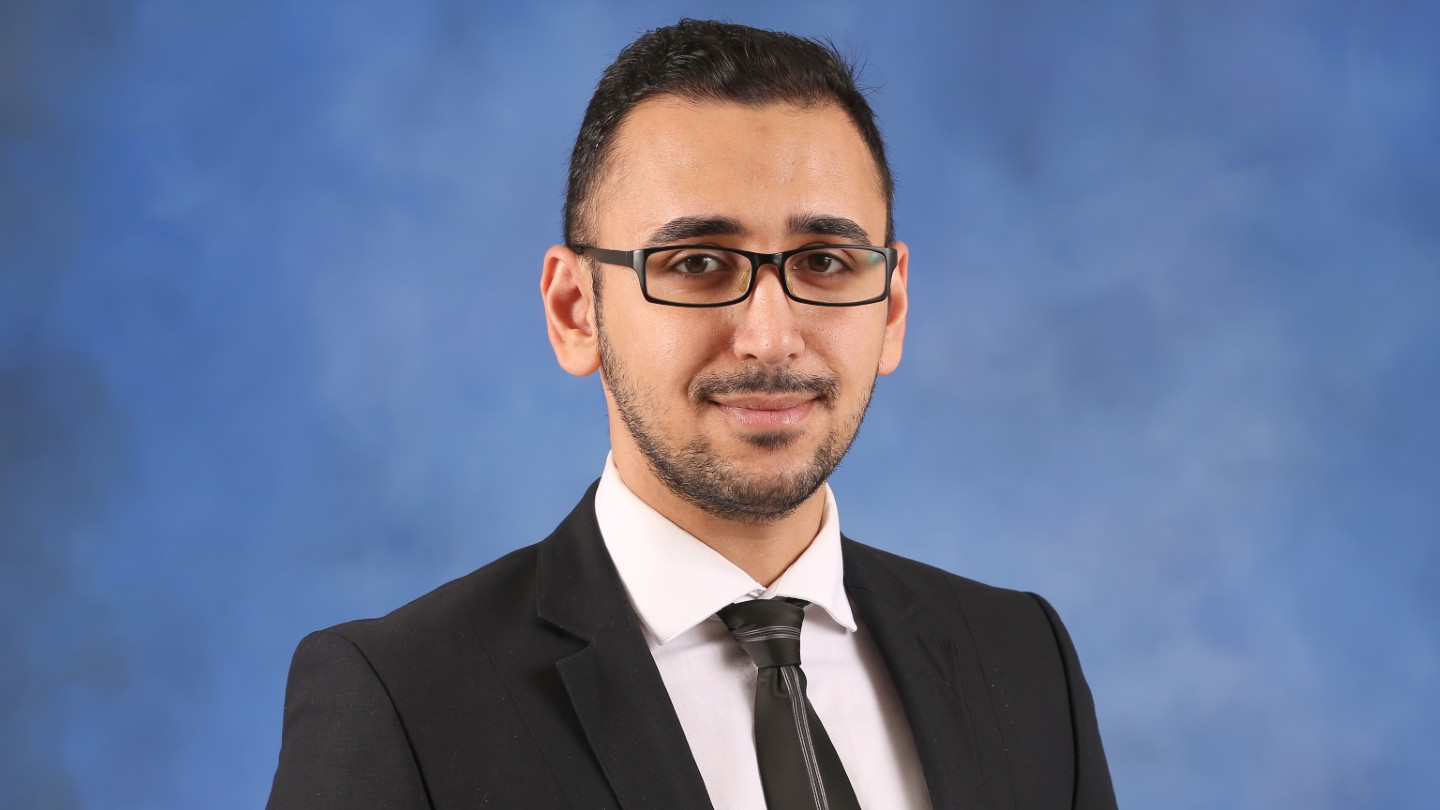
Babak Salarieh, a doctoral student in civil engineering, is a recipient of the O.H. Ammann Research Fellowship in Structural Engineering.
Research on the effects of climate change on the destruction wrought by hurricanes and how to aid community resilience through mitigation has earned Babak Salarieh, a doctoral student in civil and environmental engineering at The University of Alabama in Huntsville (UAH), a 2022 American Society of Civil Engineers O.H. Ammann Research Fellowship in Structural Engineering.
Salarieh received a master’s degree in structural engineering in 2018 from UAH, a part of the University of Alabama System. From Tehran, Iran, he is advised by Dr. Abdullahi Salman, an assistant professor of civil and environmental engineering.
“I felt a great joy and pride that my endeavors have been acknowledged and that all the hard work and time spent on research is making an impact on society,” Salarieh says. “It greatly motivates me and makes me feel honored that my research is deemed noteworthy and essential by my peers.”
Awarded to encourage creation of new knowledge in structural design and construction, the scholarship award provides Salarieh $8,000 to be used toward tuition, research and living expenses. Salarieh will continue to work with Dr. Salman at UAH to research the effects of climate change on hurricane hazards threatening coastal communities and infrastructures, and possible mitigation and adaptive measures to prevent loss and damage.
“Without Dr. Salman, none of this would have been possible, and I owe him a great deal for all my success and achievements,” Salarieh says.
His research goal is to provide further insight and understanding to local and federal governments, as well as public policymakers, to enable well-informed decision-making regarding community resilience, risk assessment, disaster preparedness and post-disaster recovery, Salarieh says.
“The social and economic impact of climate change on vulnerable coastal communities across the Atlantic and the Gulf of Mexico requires further study,” he says.
By considering the impacts that a hurricane may cause throughout a community, like job loss, dislocation, need for medical care, local business loss and loss of access to basic needs like food, shelter and clothing, it is possible to get a more holistic insight that would help in pre-disaster planning and smooth post-disaster recovery, according to Salarieh.
“I am currently performing my research on community resilience that focuses on the physical, economic and social impact of hurricanes on structures and infrastructure,” he says.
“The plans that are devised, and mitigation approaches and decisions that are made, based on an in-depth understanding of the distressed communities from a holistic risk management framework, could lead to reduced damage and loss incurred, timely recovery and further alleviation of the pain and hardships of the members of society due to natural disasters like hurricanes.”
His research could have great impact on communities by preventing disastrous outcomes and tremendous loss, he says.
“My goal is to be known as an expert in my respective field by making a positive impact on the lives of many, as well as trying to convey my insight and experience to the younger generation,” Salarieh says. “I feel that there is nothing nobler than sharing knowledge and expertise with another, whether it be through teaching or research and innovation.”
The fellowship is a testament to Salarieh’s hard work and commitment to research, says Dr. Salman.
“For the past three years, Babak has been doing a fantastic job and has been involved in all my research projects,” he says. “I am glad he is getting recognition by the ASCE, the oldest national engineering society in the United States.”
The fellowship recognizes and supports researchers working on the most pressing needs of the structural engineering community, Dr. Salman notes.
“Babak is one such researcher. His research will help reduce the enormous economic losses to coastal communities due to hurricanes.”
Contact
Dr. Abdullahi Salman
256.961.7361
abdullahi.salman@uah.edu
Jim Steele
256.824.2772
jim.steele@uah.edu
